|
UA-115346459-1
This is part 4 of the series, Go and See. These posts are designed to give you tools to "go and see" the ways God has designed you for impact right where you are, right now. If you are new here, head back to part 1, Stones of Remembrance, for the purpose and context of the series, along with the steps for creating a timeline. Then move to part 2, Thematic Labeling of Experience. Next, jump into part 3, A Clear-Conscience. Recap: Purpose & Context of Go and See series
Go and See, Part 4: Introduction Part 3: A Clear-Conscience was a heavy undertaking, wasn’t it? If you took the time to work through all components, or even some of the components of part 3, I hope you are able to see how brave, strong and courageous you are. In this session, you are going to go one step further in unpacking and understanding how, even out of painful experiences, we can be led to our greatest visions and purposes. The aim of the following is to give you tools to go and see how a single life experience can show the redemptive power of Christ and give testimony to the work of God. This will be done by examining the instructions for writing a Personal Essay and then recording an experience from your timeline in personal essay format. This may seem more academic than spiritual, but I have found that separating the secular and the sacred is a man-made way of categorizing and that God never intended us to live believing that some activities are spiritual and others are not. When we choose a life lived in Christ, all that we put our hands and minds to is encompassed by the hands and presence of our Creator. That said, as you step into the reading and activities for part 4, don’t let the academic nature of them limit your motivation to complete them, nor allow yourself to believe that they are not spiritual enough to produce a communing and powerful experience between your soul and our God. Many of the prompts and examples in this session relate to how reflecting on times of suffering, hardship or trials hold immense power to lead us to understanding our purpose and gifts. This is because it is these times in our lives that we often fail to reflect on how good these experiences were for our faith, growth and redemption. However, that doesn’t mean God doesn’t use experiences of success, triumph, or joy to also reveal our purpose and gifts. So, as you determine what to focus on in your Personal Essay, feel free to pull any life experience into the light and use it to share God’s hands in helping you understand yourself, Him or the world he created for you to be at such a time as this. Parts 3 & 4: Overarching Themes
Digging Deeper Understanding often doesn’t come in the midst of a trial or hardship. Even science reveals that the brain has a hard time learning when under stress, so it makes sense that it isn’t until later that we are able to cognitively and emotionally revisit challenging experiences of our lives and mine out the diamonds in the rough. What scientists have discovered about the brain and learning in recent years are also truths that we see in the stories of the men and women of the Bible. In addition, current-day Bible teachers like Beth Moore and Jennie Allen point out the following in regards to the relationship between suffering and understanding purpose and calling: Many of us have walked onto the path of our divine calling with a wounding. Perhaps it’s time we quit thinking that it’s an accident. ~Beth Moore, Entrusted Out of our pain we could heal the world. ~Jennie Allen, Restless 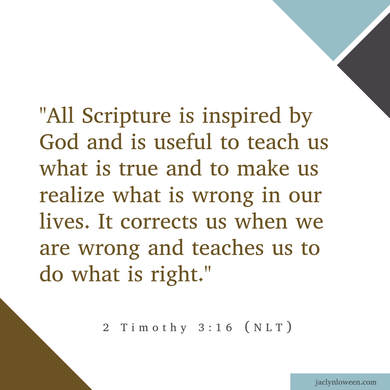 Yet, most important to our journey is to go to the the source of all truth, the Bible, where the words are sharper than a two-edged sword and are designed to instruct us on how to navigate life in this fallen world in a way that is in line with our divine calling and purposes. Take a few minutes an go and see what is written in the following passages. Come back and then take note of the following connections:
Reflection & Application Next, let's take a look at the story of Joseph. Joseph’s story is one of my favorite because his life reveals so purely how purpose and fulfillment of vision can take years and years to be revealed. And Joseph’s faithfulness in the times where it seemed the circumstances didn’t promote his calling have frequently helped me to dismiss circumstances as the voice to understanding my gifts, purpose and vision. Go and see what is recorded in Genesis 37:12-36 & 39:1-23 and highlight the verses that stick out to you. Then come back and take note of the following:
Joseph’s story reveals God’s power and character. Do you believe your story can too? I do. If we were to chart Joseph’s suffering on a timeline, from the time of his great dreams to the time he was put in charge of the land, we would likely see a 30-40 year time span. That is a lot of years of wading through undesirable, and undeserved circumstances. Yet, Joseph chooses to use his gifts no matter what is going on around him. And in the midst of it all, Joseph experiences the presence of God. In a world that honors comfort and seeks materialistic rewards as a symbol of success, it is sometimes hard to believe God is sovereign in both the experiences of favor and suffering in our life.
Tool 4: Writing a Personal Essay Tool Defined: Personal Essays: Understanding, learning from, and finding value in the moments [both the painful and joyful] in our lives. The aim of this activity is for you to begin to form your memories into stories of hope, provision, heart change, and miracles. And ultimately to then record them to be passed on from generation to generation so that "all the world may know the hand of the Lord on the earth" (Joshua 4). We also want to ensure we are “breathing life” (2 Timothy 3:16) into our stories by including Scripture and Biblical truths into the re-telling or our stories. A personal essay re-creates a specific experience or event in your life using sensory details, specific action, and revealing dialogue to engage the reader in a way that makes him or her feel like she is a part of the experience. The objective of the story is to show what you learned from the experience--to recollect, reflect and display revelations and truths that were birthed from it . Begin by going back to your timeline from Sessions 1 & 2. Pray and ask the Holy Spirit to show you if there is one “stone” that your heart needs you to go and see deeper into understanding or one that highlights a significant impact God had in revealing himself to you. Then, simply circle the 1-3 "stones" that most jump out to you after you pray. Next to each write just one word that could symbolize the theme or lesson of that experience. If you have not yet labeled the experience with one of the following categories: Creation, Fall, Restoration, Redemption, then do so before moving on. Personal Essay Writing Instructions
Closing Each day this week, spend time working on creating a personal essay from an event or experience on your timeline. This may be very challenging, especially to get started, but see this time as an invitation from Jesus to “come away with me by yourself to a quiet place.” And imagine that you may end up on the other side of the lake being asked what you have to meet the needs of the people there. Consider that your story is what you have, it is your five loaves and two fish. Be expectant that God will take what you have and multiply it. Believe he will and let that bring you freedom to put pen to paper or fingers to keyboard and just start writing. As you are writing, keep in mind what category the experience you are focussing on is settled under(Creation, Fall, Redemption, or Restoration). Let this help you find scripture and Biblical truths to add into the message you are trying to convey to your listening. Incorporate the Bible verses you find into the telling of your story. Don’t worry about grammar, spelling, punctuation...none of that! Just worry about getting your ideas down in a somewhat organized manner that communicates how this part of your story reveals God’s story (either in your life or in the world). Remember, you best communicate your faith by showing His[God’s] Story, plus My Story, and how it equals Our [Your’s & God’s together] Story. This is part 4 of the series, Go and See. These posts are designed to give you tools to "go and see" the ways God has designed you for impact right where you are, right now. If you are new here, head back to part 1, Stones of Remembrance, for the purpose and context of the series, along with the steps for creating a timeline. Then move to part 2, Thematic Labeling of Experience. Next, jump into part 3, A Clear-Conscience. Subscribe below to receive the following posts in this series to your inbox.
0 Comments
Leave a Reply. |
Jaclyn LoweenEDUCATION Links to all the, Go and See Study, sessions.
Archives
June 2018
|
||||||
Proudly powered by Weebly
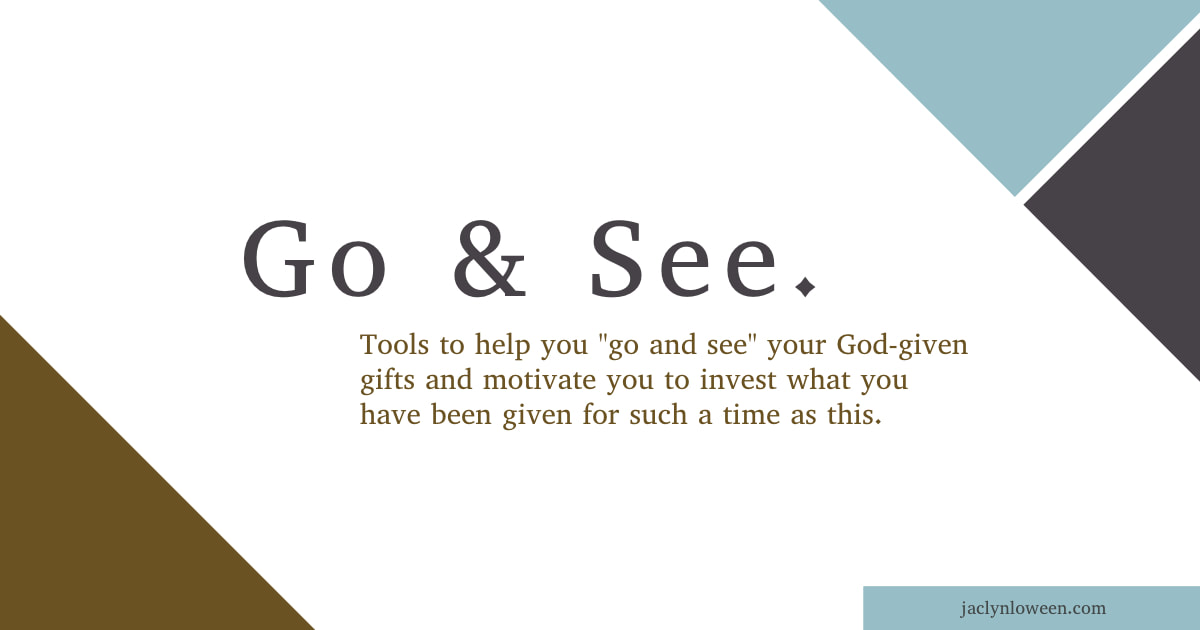

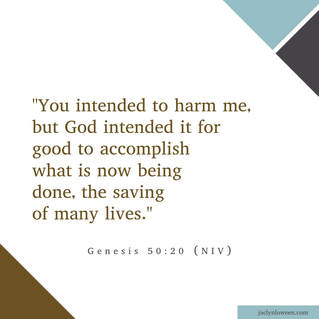
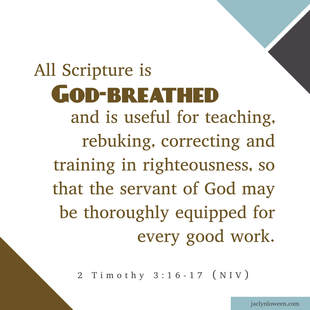
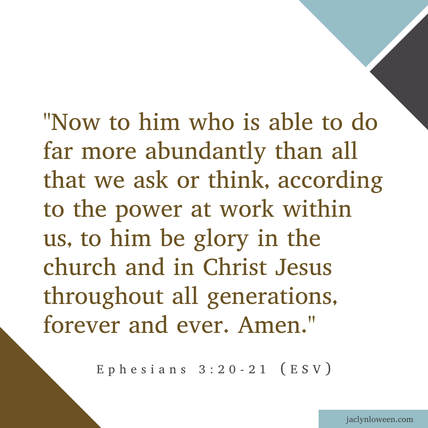

 RSS Feed
RSS Feed